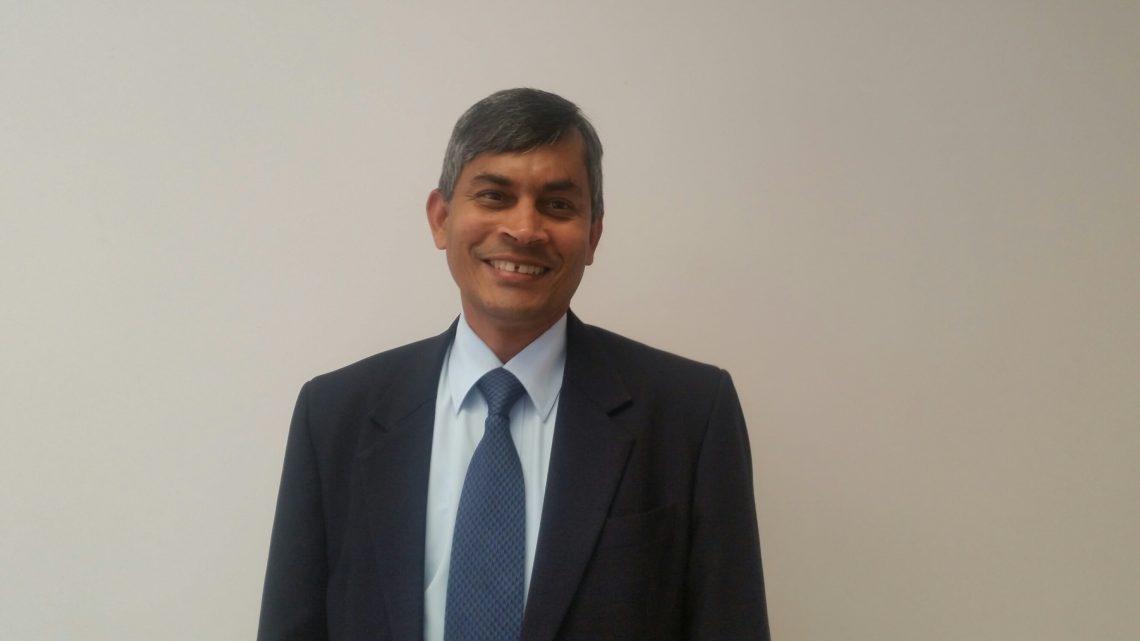Dr. Amarakoon Bandara, the United Nations Development Programme (UNDP) Zimbabwe’s Senior Economic Advisor has said the youths play a critical role in championing the Sustainable Development Goals.
Dr. Bandara made the remarks during the World Economic Forum’s Strategic Engagement Visit to Zimbabwe as he answered an array of questions fielded to him during a panel discussion on “The role of young people in championing SDGs in an Open Zimbabwe”
Below Spiked Online Media reproduces the interview where he answered a variety of questions on the important developmental subject:
Question: The winds of the 4th industrial revolution – where technology and innovation determines the modes of service delivery have swept all over the world. In Zimbabwe, young people are catching up with this trend and fielding brilliant solutions to the country’s most challenging problems. Unfortunately, most of them face challenges in domesticating these solutions in the country and end up in the more development countries. What measures is the government taking or should be taking to promote retention of the skilled workforce and mitigate the risk of more young talent leaving?
Answer: First and foremost, we need to understand why the young people, skilled or unskilled, leave the country and migrate elsewhere looking for greener pastures. Brain drain occurs when there are no opportunities for them to exploit or exploitation of such opportunities are cumbersome.
Economic opportunities are created through a robust economy. To create a robust economy, we need to have a broader and inclusive development agenda and implement it effectively. With nearly 70% of the population living in rural areas and dependent on agriculture, it makes sense to put rural development at the centre of the development agenda to alleviate poverty.
Measures to increase agricultural productivity including through value addition, diversification and adaptation of modern technology would enable not only to reduce poverty but also ensure a better and quality life. But we should not end there. Agriculture inherently faces structural constraints and as such it along would not enable a country to develop. But it is a first step. We may want to develop the industrial and services sectors to absorb the excess labour in the agricultural sector, which in turn help increase labour productivity and increase income per capita from agriculture.
But the shift of labour from agriculture to industry and services is not automatic. It must be facilitated by the government. While taking steps to develop the industrial and services sectors including through the provision of infrastructure, rules and regulations, it needs to build the skills base required for the industries to run. This could be done through the formal education system as well as through other means including technical and vocational training. If the current educational system doesn’t cater to the demands of the new generation private sector or individual initiatives, it has to be revisited and reformed to match the needs. Special emphasis on STEM (Science, Technology, Engineering and Mathematics) subjects could be the best approach.
We are not there yet to facilitate young people’s desires of domesticating their solutions. Policy and institutional environment often constrain in doing so. Therefore, we need to have a policy environment that facilitates such initiatives. Policy consistency and coherence will always strengthen private entrepreneurship and investment. On the other hand, policy inconsistency and incoherence always drive the investors (and inventors in this case) away as it creates uncertainty and raise cost of doing business.
How public-sector institutions deliver their services always matter to bringing new ideas and implement them. A lethargic public sector is not conducive for private businesses or innovation. Young people are always curious, innovative and on the move. If the doors are closed for them in their own countries, they will explore other options elsewhere. An efficient public-sector institutional set up along with transparency and accountability mechanisms could help retain and develop new generation ideas or skilled labour. Developing countries lose a lot due to brain drain, not only because they spend lot of money in educating the youth, but also by not being able to use their services for the development of their own country.
One thing we need to emphasise is that addressing such issues should not be done in an isolated manner. A holistic approach is needed to develop the country on a sustainable basis. Development of innovative ideas as well as retaining and domesticating them could be supported through specific action on investments on Research and Development (R&D), establishing property rights and even direct partnerships with potential investors and inventors.
The youths themselves should engage with the government in designing policies and programmes that affect them now and in the future. It not only enable them to address traditional issues affecting the youth but also in bringing in new ideas to shape their destiny.
